Filter by

Oral Literature in the Digital Age: Archiving Orality and Connecting With Com…
Thanks to ever-greater digital connectivity, interest in oral traditions has grown beyond that of researcher and research subject to include a widening pool of global users. When new publics consume, manipulate and connect with field recordings and digital cultural archives, their involvement raises important practical and ethical questions. This volume explores the political repercussions of s…
- Edition
- -
- ISBN/ISSN
- 9781909254329
- Collation
- -
- Series Title
- -
- Call Number
- -
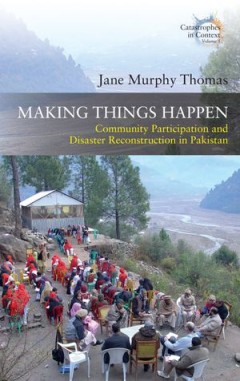
Off-Canon pleasures - a case study and a perspective
The inclusion of works in a canonical list creates a large body of exclusions. But among these neglected works there are not a few that nevertheless are worth reading. Literary worth is not necessarily aesthetic impeccability. A literary work recommends itself by a high degree of artistic achievement with elbowroom for historical importance. The present study focuses on Leo Rosten’s immigrati…
- Edition
- -
- ISBN/ISSN
- 9783941875951
- Collation
- -
- Series Title
- -
- Call Number
- -
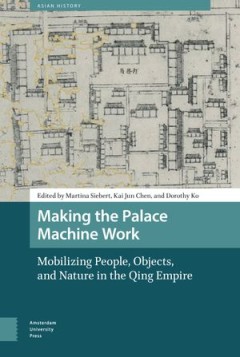
Of Reynaert the Fox: Text and Facing Translation of the Middle Dutch Beast Ep…
The mid thirteenth-century Dutch beast epic Van den vos Reynaerde is a fascinating reworking of the most popular branch of the Old French Roman de Renart and one of the finest examples of this popular genre, consisting of a lengthy cycle of animal tales which provided a satirical commentary on human society. Featuring the archetypal sly fox, the epic is also one of earliest examples of a longer…
- Edition
- -
- ISBN/ISSN
- 9789089640246
- Collation
- -
- Series Title
- -
- Call Number
- -
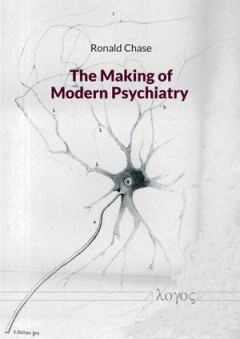
The Novel Map: Space and Subjectivity in Nineteenth-Century French Fiction
Focusing on Stendhal, Gérard de Nerval, George Sand, Émile Zola, and Marcel Proust, The Novel Map: Mapping the Self in Nineteenth-Century French Fiction explores the ways that these writers represent and negotiate the relationship between the self and the world as a function of space in a novel turned map.With the rise of the novel and of autobiography, the literary and cultural contexts…
- Edition
- -
- ISBN/ISSN
- 9780810128668
- Collation
- -
- Series Title
- -
- Call Number
- -

Novel Districts: Critical Readings of Monika Fagerholm
"Finland-Swedish writer Monika Fagerholm is one of the most important contemporary Nordic authors. Her experimental, puzzling and daring novels, such as Underbara kvinnor vid vatten (1994) and Den amerikanska flickan (2004), have attracted much critical attention. She has won several literary awards, including the Nordic prize from the Swedish Academy in 2016; her works have travelled across na…
- Edition
- -
- ISBN/ISSN
- 9789522227560
- Collation
- -
- Series Title
- -
- Call Number
- -
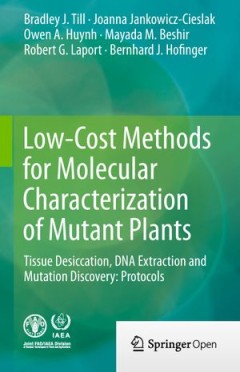
The Novel in the Spanish Silver Age: A Digital Analysis of Genre Using Machin…
What distinguishes an adventure novel from a historical novel? Can the same text belong to several genres? More to one than to another? Have some existing genres been overlooked? To answer these and similar questions, José Calvo Tello combines methods from Linguistics (lexicography), Literary Studies (genre theory), and Computer Science (machine learning, natural language processing). Located …
- Edition
- -
- ISBN/ISSN
- 9783839459256
- Collation
- -
- Series Title
- -
- Call Number
- -
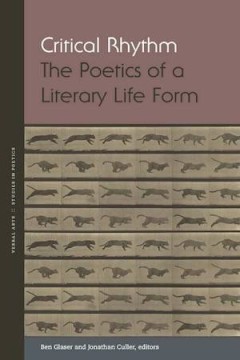
Critical Rhythm: The Poetics Of A Literary Life Form
Explores both the theory and practice of rhythm in literature with a focus on nineteenth and twentieth-century poetry. Emphasis on rhythm's role in contemporary literary criticism, including debates about poetic form and genre. This collection intervenes in recent debates over formalism, historicism, poetics, and lyric by focusing on one of literary criticism's most important, most vested, and …
- Edition
- -
- ISBN/ISSN
- 9780823282043
- Collation
- -
- Series Title
- -
- Call Number
- 808.1

Mythodologies: Methods in Medieval Studies, Chaucer, and Book History
Mythodologies challenges the implied methodology in contemporary studies in the humanities. We claim, at times, that we gather facts or what we will call evidence, and from that form hypotheses and conclusions. Of course, we recognize that the sum total of evidence for any argument is beyond comprehension; therefore, we construct, and we claim, preliminary hypotheses, perhaps to organize the ch…
- Edition
- -
- ISBN/ISSN
- 9781947447561
- Collation
- -
- Series Title
- -
- Call Number
- -
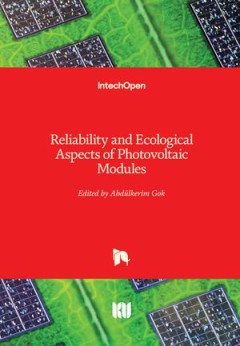
The Myth of Piers Plowman: Constructing a Medieval Literary Archive
Addressing the history of the production and reception of the great medieval poem, Piers Plowman, Lawrence Warner reveals the many ways in which scholars, editors and critics over the centuries created their own speculative narratives about the poem, which gradually came to be regarded as factually true. Warner begins by considering the possibility that Langland wrote a romance about a werewolf…
- Edition
- -
- ISBN/ISSN
- 9781107043633
- Collation
- -
- Series Title
- -
- Call Number
- -
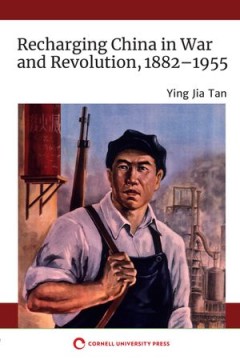
Murder Ballads: Exhuming The Body Buried Beneath Wordsworth'S Lyrical Ballads
In 1798, William Wordsworth and Samuel Taylor Coleridge were engaged in a top secret experiment. This was not, as many assume, the creation of a book of poetry. A book emerged, to be sure—the landmark Lyrical Ballads. But in Murder Ballads, David John Brennan posits that the two poets were in fact pursuing far different ends: to birth from their poems a singular, idealized Poet. Despite their…
- Edition
- -
- ISBN/ISSN
- 9780692734629
- Collation
- -
- Series Title
- -
- Call Number
- -
 Computer Science, Information & General Works
Computer Science, Information & General Works  Philosophy & Psychology
Philosophy & Psychology  Religion
Religion  Social Sciences
Social Sciences  Language
Language  Pure Science
Pure Science  Applied Sciences
Applied Sciences  Art & Recreation
Art & Recreation  Literature
Literature  History & Geography
History & Geography